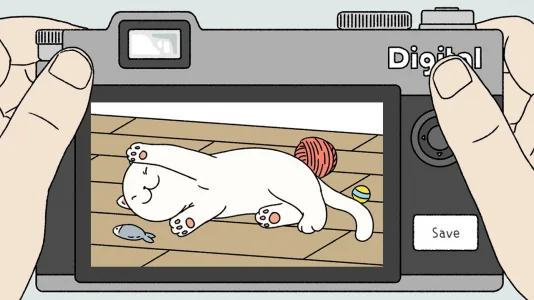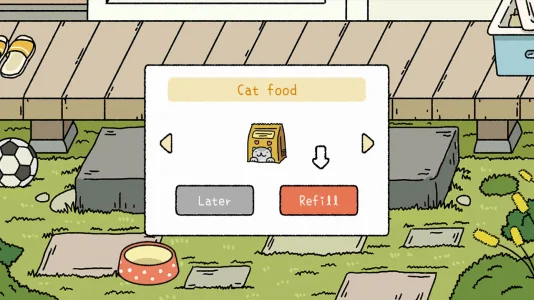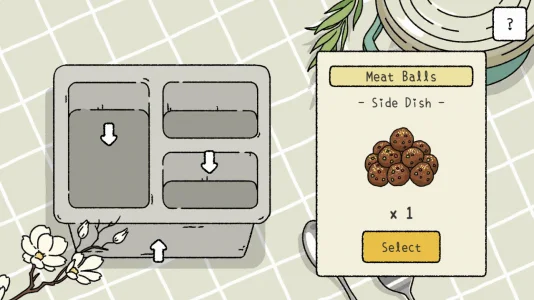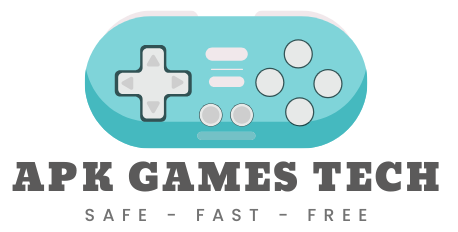Download Adorable Home MOD 2026
*Adorable Home* is a 2D domestic life simulation game developed by HyperBeard. The game’s premise places the player in the role of a character who moves into a new home with a partner and pets. The central objective involves decorating the house and performing care-based tasks, such as preparing meals for the partner and tending to cats, to earn an in-game currency called “Love.” This currency is then used to purchase furniture and unlock new areas, facilitating the home’s expansion and personalization.
Game Visuals




About Adorable Home
An Analytical Overview of Adorable Home: The Cozy Simulation Experience
Adorable Home is a 2D domestic life simulation game that places players into a narrative of starting a new life in a suburban home. The title was developed and published by HyperBeard, a studio renowned for its focus on the "cute-casual" gaming niche. The core premise involves the player character moving into a new house with a chosen partner and an inaugural pet, a white cat named Snow. The central objective is the transformation of this empty house into a personalized home through decoration, pet care, and nurturing a loving environment. The game is classified within the Simulation, Care, Pet, and Stylized genres, fitting perfectly within the growing "cozy game" category that emphasizes a relaxing, passive experience over high-stakes, action-oriented gameplay. The significant market success of Adorable Home indicates strong consumer demand for tranquil and aesthetically pleasing mobile titles.
Developer Profile and Market Context
HyperBeard: A Powerhouse in the "Cute-Casual" Genre
The developer, HyperBeard, has strategically established itself as "the #1 destination for cute, cozy, casual games." Based in Mexico, HyperBeard stands as the nation's largest mobile game developer and publisher, with a portfolio that has achieved over 200 million global downloads. This portfolio includes other well-known titles that share a consistent design philosophy and visual style, such as *Pocket Love*, *Tsuki's Odyssey*, and *KleptoCats*. This consistent brand identity is a deliberate market positioning strategy, cultivating a loyal player base that moves between its various titles. HyperBeard also functions as a publisher for independent studios, leveraging its expertise in App Store Optimization (ASO), cross-promotion, and organic user acquisition to elevate smaller games in a saturated market. The viral success of its own titles, like Adorable Home, serves as a powerful case study in its publishing endeavors.
Release History and Viral Phenomenon
Adorable Home was officially released on January 9, 2020, and it quickly achieved viral status. Shortly after its launch, the game amassed approximately 5 million downloads, demonstrating its immediate resonance with a global audience. Its growth has continued, with the title surpassing 10 million downloads on the Google Play Store alone. This success has cemented its position as a major commercial and cultural hit within the casual simulation genre and has become a cornerstone of HyperBeard's identity as a publisher capable of launching multi-million-download titles.
Gameplay Mechanics and Core Experience
The Passive, Single-Player Journey
Adorable Home is explicitly designed as a "passive and relaxing experience" intended for a casual, single-player audience. The gameplay loop encourages players to check in every few hours to perform short tasks, collect resources, and observe new developments rather than demanding continuous active engagement. A key technical feature is its offline functionality, allowing players to engage with core mechanics without a persistent internet connection. This passive design is both the game's core appeal and its primary source of criticism. While it attracts players seeking a tranquil escape, the reliance on timers and a lack of deep gameplay systems leads many to find the experience becomes repetitive or chore-like over time. This tension highlights a fundamental challenge of the idle game genre: balancing a passive reward loop with enough active engagement to maintain player interest.
The "Love" Economy: A Singular Progression System
Progression in Adorable Home is entirely built around a single in-game currency: "Love," represented by heart icons. This resource is used to purchase all items, including furniture, decorations, food, new rooms, and additional pets. The primary objective for the player is the consistent acquisition of Love. This currency is gathered from several core activities within the game.
- Partner Care: The daily task of preparing a bento box for the player's partner before they leave for work. The amount of Love rewarded upon their return is proportional to the quality of the meal.
- Cat Care: Interacting with the household's cats through feeding and a series of mini-games, including petting, nail clipping, and bathing. Successfully completing these tasks yields Love.
- Visitors: After unlocking the Garden area, various animals will periodically visit the home and leave gifts of Love for the player to collect.
Key Activities and Mini-Games
A player's time is spent in a recurring loop of activities designed to generate Love. This includes the daily bento box preparation, where experimenting with food combinations can lead to higher payouts. The cat care mini-games, such as petting, nail clipping, and bathing, are a primary source of active engagement, though they are frequently criticized by players for having difficult or unresponsive controls. Home decoration serves as the game's main creative outlet and long-term goal, where players spend their accumulated Love. However, a significant player complaint is the restrictive nature of this system, as furniture can only be placed in pre-determined slots and cannot be freely rotated. The game also features a collection mechanic called "Adorable Moments," where players can use an in-game camera to capture snapshots of unique events.
Thematic Elements and Platform Accessibility
LGBTQ+ Inclusivity and Content Rating
A celebrated feature of Adorable Home is its status as "LGBTQ+ friendly." During the initial character creation, players can choose their own avatar and their partner's avatar without any gender restrictions, allowing for the creation of same-sex couples. This inclusive design has been a significant factor in its broad appeal. The game's focus on domestic life also includes "mature themes" and depictions of characters in "revealing outfits" within the privacy of the home. Consequently, the game holds an age rating of "Everyone 10+" on the Google Play Store and a stricter "13+" on the Apple App Store, with the developer explicitly noting the content may be inappropriate for children.
Multi-Platform Availability
Adorable Home is accessible on a wide array of platforms. Its primary distribution is on mobile, available for Android via the Google Play Store and for iOS through the Apple App Store. An official port for personal computers exists through the "Google Play Games on PC" service. Prior to this, and as an ongoing alternative, players have used Android emulators like BlueStacks to run the game on PC or Mac. Furthermore, the existence of an official Steam community page indicates a planned or recent release on the Steam platform, further expanding its reach to the PC gaming market.
System Requirements for an Optimal Experience
Android and iOS Specifications
To ensure smooth gameplay, devices must meet specific technical requirements. For the Android version, the latest updates require Android 7.0 or higher, with an installation file size ranging from 150 MB to 194 MB. For Apple's ecosystem, the requirements are more demanding: iPhones and iPod Touches require iOS 15.0 or later, while iPads need iPadOS 15.0 or later. The game can run on a Mac, but it requires macOS 15.0 or later and must be a model equipped with an Apple M1 chip or newer. The storage footprint on Apple devices is substantially larger, at approximately 658 MB.
PC Requirements: Official vs. Emulation
The officially supported "Google Play Games on PC" version has stringent requirements, including Windows 10 (v2004), a mandatory 10 GB Solid State Drive (SSD), 8 GB of RAM, and a CPU with at least 4 physical cores. In contrast, unofficial emulation through software like BlueStacks is more flexible, requiring only Windows 7 or higher, 4 GB of RAM, and 10 GB of disk space on any drive type (HDD or SSD). This distinction is critical for users with older hardware, as an emulator may be their only viable option for playing on a PC.
Deconstructing the Freemium Monetization Strategy
Adorable Home operates on a standard freemium model, generating revenue through in-game advertising and optional in-app purchases (IAP). Advertising is a core component of the economy for free-to-play users. The game primarily uses optional, rewarded video ads, which allow players to double their "Love" earnings from tasks. However, the game also implements non-optional ads as a penalty for failing one of the cat care mini-games. For players who wish to accelerate progress, "Love" can be purchased directly with real money in various tiers, starting from $0.99. A notable nuance of the monetization system is the "remove ads" feature; making any real-money purchase permanently removes the punitive, non-optional ads but does not remove the optional rewarded ads, a detail that often causes confusion among players.
An Introduction to the Gameplay of Adorable Home
Adorable Home is a domestic life simulation game that places players in the role of a character establishing a new life with a partner and a pet cat. The central objective involves the transformation of a new house into a personalized home. Players achieve this goal by decorating rooms, caring for their partner, and expanding their collection of animal companions. The game’s design prioritizes a passive and relaxing experience, built around low-stress task management and aesthetic satisfaction. Its gameplay loop encourages players to check in periodically to perform routine tasks, gather resources, and observe the tranquil evolution of their virtual household.
The Core Gameplay Loop and “Love” Economy
The entire progression system in Adorable Home is governed by a single in-game currency called “Love,” represented visually by heart icons. This resource facilitates every purchase within the game, including furniture, decorations, food items, and the adoption of new cats. The player’s primary activities are therefore oriented around the consistent and efficient generation of Love. The game provides three primary channels for acquiring this central currency, forming a cyclical gameplay routine.
Partner Care and Bento Box Preparation
A key daily activity involves preparing a bento box for the player’s partner before they depart for work. The player selects a main course, side dish, and dessert from their inventory to pack into a lunchbox. The amount of Love received as a reward upon the partner’s return is directly proportional to the quality and combination of the food provided. This mechanic encourages players to experiment with more expensive and complementary food items to maximize their daily Love income from this source.
Cat Care and Interactive Mini-Games
Interacting with the household’s cats constitutes another major source of Love. Players earn passive Love by ensuring the cats’ food bowls are kept full. More active engagement occurs through a series of mini-games. The petting mini-game requires the player to discover a cat’s preferred spots for affection. The nail-clipping challenge is a timing-based task where the player must swipe precisely to trim claws. The bathing mini-game involves maintaining a specific water temperature by adjusting controls. Successful completion of these mini-games yields significant Love rewards, though their challenging controls can present a source of mechanical friction for players.
Home Decoration and Creative Expression
The ultimate goal for many players is the decoration of their home. Players spend their accumulated Love in the in-game shop to purchase a wide variety of furniture and decor. These items are then placed within the Lounge, Garden, Bedroom, and other unlockable rooms. It is important to note that the decoration system has significant limitations; items can only be placed in pre-determined slots and cannot be freely rotated. This transforms the decoration mechanic from a tool of open creativity into a collection-based system where players work to fill designated spaces within each room.
A Guide to Player Progression
A new player’s journey in Adorable Home follows a structured path from initial setup to long-term expansion. The experience is designed to be gradual, rewarding patience and consistent daily engagement.
Initial Setup and First Tasks
The game begins with character creation, where the player selects avatars for themselves and their partner without any gender restrictions. The couple then moves into a sparsely furnished house with their first cat, Snow. The initial gameplay tutorial guides the player through foundational tasks such as feeding the cat, attempting the first petting mini-game, and preparing the first bento box for the partner. These actions establish the core gameplay loop that defines the long-term experience.
Long-Term Objectives: Expanding Your Home
Progression is measured by the player’s ability to expand their living space and pet collection. The game starts with access only to the Lounge. Players must save substantial amounts of Love to unlock additional areas, such as the Garden, Bedroom, Farm, Kitchen, and Bathroom. Each new room provides more space for decoration and can introduce new gameplay elements, such as visitors who leave Love as gifts in the Garden. A key progression milestone is the adoption of more cats, with up to twelve available for purchase. Each new cat functions as an additional, permanent source of Love generation, making their acquisition a critical investment for accelerating progress.
Strategic Insights for Maximizing Love
For players seeking to progress more efficiently, a set of community-developed strategies focuses on optimizing the generation and expenditure of Love. These tips provide a clear path for economic growth and gameplay efficiency.
- Prioritize Cat Acquisition: The most effective early-game strategy is to invest Love in purchasing all twelve available cats before spending heavily on furniture. Each cat acts as a permanent, Love-generating asset through both passive feeding and active mini-games, making them the single best investment to accelerate currency accumulation.
- Optimize Feeding for High Returns: Feeding cats is a reliable and time-efficient method for earning Love. Players can maximize their returns by using higher-quality food options. Community analysis suggests that “dried fishes” and “orange fish” provide the best ratio of Love earned to their initial cost.
- Follow a Strategic Unlocking Order: The sequence for unlocking new rooms significantly impacts progression. Players should unlock the Garden and Bedroom early to attract new visitors, which creates another passive stream of Love. Critically, players must unlock the Farm before the Kitchen, as the Kitchen’s functionality is entirely dependent on ingredients grown on the Farm.
- Manage Ad Engagement Selectively: The game’s economy encourages watching rewarded video ads. The most efficient strategy is to always watch ads to double the Love received from high-yield activities, such as the partner’s bento box reward and successfully completed cat care mini-games. This selective approach maximizes gains without requiring excessive ad viewing.
- Utilize Environmental Bonuses: Players should remain observant of their surroundings. At night, tapping on glowing fireflies in the Garden can yield a random Love bonus. The television in the Lounge can also be tapped periodically to watch an optional ad for a small reward.
Players should also note that the game has internal systems to prevent cheating through “time-skipping,” or manually advancing a device’s clock. Attempting this exploit will not work and can disrupt the game’s internal timers.
